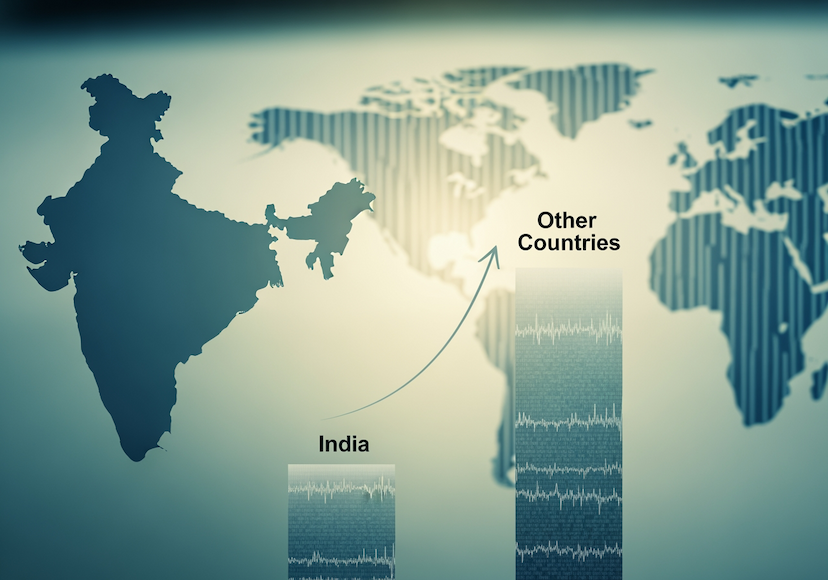
Common Myths About IVF Treatment Doctors Bust Them
13 Nov, 2025
 Healthtrip
Healthtrip- < li>Myth: IVF Guarantees a Baby - Doctors Explain Success Rates < li>Myth: IVF is Only for Young Women - Age and IVF Success
- Myth: IVF Always Results in Multiples - Single Embryo Transfer
- Myth: IVF is Extremely Painful - Understanding the Process and Discomfort
- Myth: IVF is Only Available in Specific Countries - Exploring Global IVF Options < li>Myth: IVF Prevents Genetic Diseases - Genetic Screening and IVF
- Myth: IVF is the Last Resort - Understanding Different Fertility Solutions
- IVF Clinics and Hospitals
- Conclusion: Debunking Myths and Empowering Your IVF Journey
Myth 1: IVF Guarantees a Baby
One of the most pervasive myths surrounding IVF is the idea that it's a guaranteed path to parenthood. While IVF has revolutionized fertility treatment and significantly increased the chances of conception for many, it's essential to understand that it's not a foolproof solution. Success rates vary depending on several factors, including the woman's age, the quality of eggs and sperm, the underlying cause of infertility, and the specific IVF protocol used. For instance, a woman in her early 30s undergoing IVF at a facility like LIV Hospital, Istanbul, might have a higher success rate compared to a woman in her late 40s. It's crucial to have realistic expectations and understand that multiple IVF cycles may be necessary to achieve a successful pregnancy. Fertility specialists at hospitals like Saudi German Hospital Cairo, Egypt, emphasize the importance of a thorough evaluation and personalized treatment plan to optimize your chances of success and openly discuss realistic outcomes based on your individual circumstances. Remember, IVF is a powerful tool, but it’s just one part of the equation, and understanding the nuances can help manage expectations and reduce potential disappointment.
Most popular procedures in India
Myth 2: IVF is Only for Women with Fertility Problems
The notion that IVF is solely for women experiencing fertility problems is a common misconception that overlooks the diverse applications of this advanced reproductive technology. While it's true that IVF is often used to address female infertility issues such as blocked fallopian tubes, ovulation disorders, or endometriosis, it also plays a crucial role in overcoming male infertility factors, such as low sperm count or poor sperm motility. In these cases, techniques like Intracytoplasmic Sperm Injection (ICSI), where a single sperm is directly injected into an egg, can significantly improve fertilization rates. Furthermore, IVF is increasingly utilized by LGBTQ+ couples and single individuals who wish to start a family, facilitating options like donor sperm or eggs. Facilities like NewGenIvf Group, Hon Kong, cater to a diverse range of patients, highlighting the inclusivity of modern IVF treatments. It’s also an option for couples who are carriers of genetic diseases, allowing for preimplantation genetic testing (PGT) to screen embryos for specific genetic disorders before implantation, thus reducing the risk of passing on these conditions to their offspring. So, whether you're facing unexplained infertility, seeking to overcome genetic challenges, or exploring alternative paths to parenthood, IVF offers a range of solutions tailored to your unique needs, often available through Healthtrip affiliated hospitals.
Myth 3: IVF is Painful and Requires Extensive Bed Rest
Many people believe that IVF treatment is an excruciatingly painful process that necessitates prolonged bed rest, but this is largely an exaggeration. While some discomfort is certainly possible, especially during procedures like egg retrieval, it's generally manageable with pain medication. Egg retrieval, typically performed under sedation, minimizes any potential pain. Post-procedure, some women may experience mild cramping or bloating, similar to menstrual discomfort, but this usually subsides within a few days. Dr. at Helios Klinikum Erfurt emphasizes that most patients can resume their normal activities shortly after the procedure. The idea of extensive bed rest is also outdated. Studies have shown that prolonged bed rest doesn't improve IVF success rates and can even have negative effects on physical and mental well-being. Instead, doctors at facilities like Bangkok Hospital generally recommend light activity and avoiding strenuous exercise in the initial days following embryo transfer. The key is to listen to your body, stay hydrated, and maintain a healthy lifestyle. With modern IVF protocols and expert care from facilities like Memorial Bahçelievler Hospital, the treatment is designed to be as comfortable and minimally disruptive as possible, allowing you to continue living your life while pursuing your dream of parenthood with Healthtrip.
Wellness Treatments
Give yourself the time to relax
Lowest Prices Guaranteed!

Lowest Prices Guaranteed!
Myth 4: IVF Always Results in Multiple Pregnancies
There's a common misconception that IVF frequently leads to multiple pregnancies, such as twins or triplets. While it's true that in the past, transferring multiple embryos was a common practice to increase the chances of pregnancy, modern IVF clinics are increasingly moving towards elective single embryo transfer (eSET), particularly for younger women with good quality embryos. This approach significantly reduces the risk of multiple pregnancies, which are associated with higher risks of complications for both the mother and the babies, such as premature birth, low birth weight, and gestational diabetes. At hospitals like Fortis Memorial Research Institute, Gurgaon, doctors prioritize the health and safety of both the mother and the child, carefully evaluating each patient's individual circumstances to determine the optimal number of embryos to transfer. While some patients may still opt for multiple embryo transfer after a thorough discussion of the risks and benefits, the trend is definitely shifting towards eSET to minimize the likelihood of multiple pregnancies. So, rest assured that with advancements in IVF techniques and a focus on personalized care, the chances of a multiple pregnancy are lower than you might think, especially when you're under the care of experienced professionals guided by Healthtrip’s network of medical experts who are affiliated with facilities such as Mount Elizabeth Hospital.
Myth 5: IVF is Only for the Wealthy
The perception that IVF is exclusively accessible to the wealthy is a significant barrier for many individuals and couples who dream of starting a family. While it's true that IVF can be a costly procedure, advancements in medical tourism and the availability of treatment options through platforms like Healthtrip are making it more accessible than ever before. Healthtrip connects patients with reputable fertility clinics around the world, including Vejthani Hospital, Bangkok and Taoufik Clinic, Tunisia, offering competitive pricing and comprehensive packages that can significantly reduce the financial burden. Additionally, many clinics offer financing options and payment plans to help make IVF more affordable. It’s also worth investigating whether your insurance plan covers any portion of IVF treatment, as coverage varies widely depending on your location and policy. Remember to factor in all costs, including medications, consultations, and potential additional procedures. While the financial commitment is undeniable, exploring all available options and considering destinations where healthcare costs are lower can make IVF a realistic possibility for a wider range of individuals and couples seeking to build their families, supported by Healthtrip’s commitment to affordable and accessible healthcare solutions. NMC Specialty Hospital, Al Nahda, Dubai is another facility which provides financial assistance.
Myth: IVF Guarantees a Baby - Doctors Explain Success Rates
Embarking on the IVF journey is often filled with hope and anticipation, but it's crucial to approach it with realistic expectations. One of the biggest misconceptions surrounding In Vitro Fertilization (IVF) is the belief that it guarantees a baby. While IVF has revolutionized fertility treatment and offered hope to countless couples, it's essential to understand that success is not always assured. It's more like planting a seed – you prepare the soil, nurture it, and hope for the best, but various factors influence whether that seed will sprout. Doctors emphasize that IVF success rates are not 100%, and they vary significantly depending on individual circumstances. Factors such as the woman's age, the quality of eggs and sperm, underlying medical conditions, and the specific IVF clinic all play a role. Think of it as a complex equation with multiple variables, where each patient presents a unique set of circumstances. At Healthtrip, we connect you with experienced fertility specialists who can provide personalized assessments and realistic expectations, guiding you through the process with transparency and support. Facilities like First Fertility Bishkek, Kyrgyzstan provide options for prospective parents looking to navigate the complexities of IVF, providing support throughout the journey. We work with hospitals like Fortis Memorial Research Institute, Gurgaon, to expand access to reliable fertility services. Understanding IVF success rates isn't about dampening hope, but rather about arming yourself with knowledge to make informed decisions.
Myth: IVF is Only for Young Women - Age and IVF Success
The ticking biological clock is a constant concern for women considering motherhood, and this concern is often amplified when exploring IVF. The myth that IVF is only effective for young women is a significant hurdle for many. While it's true that age is a crucial factor influencing IVF success, it's certainly not the only one. Younger women generally have higher success rates because their eggs are typically of better quality and quantity. However, advancements in reproductive technology have expanded the possibilities for older women as well. Techniques like egg donation, where younger, healthier eggs are used, have significantly improved success rates for women in their 40s and even 50s. Furthermore, preimplantation genetic screening (PGS) can help identify embryos with the correct number of chromosomes, which increases the chances of a successful pregnancy and reduces the risk of miscarriage, particularly in older women. It's essential to remember that everyone's fertility journey is unique, and there are numerous factors beyond age that influence IVF outcomes. A comprehensive evaluation by a fertility specialist is crucial to assess individual circumstances and determine the most appropriate treatment plan. Healthtrip partners with leading fertility clinics globally, such as NewGenIvf Group, Hon Kong and IERA Lisbon Assisted Reproduction Institute, offering access to cutting-edge technologies and experienced medical professionals who can tailor treatment to your specific needs, regardless of age. Remembering that hope and possibility remain is one of the most important steps in the journey. At Saudi German Hospital Cairo, Egypt, their specialists can consult you in relation to your IVF options.
Myth: IVF Always Results in Multiples - Single Embryo Transfer
The image of multiple babies, often twins or triplets, is strongly associated with IVF, leading to the common myth that IVF always results in multiples. While it is true that, historically, multiple embryo transfer was a common practice to increase the chances of pregnancy, modern IVF techniques have shifted towards a safer and more effective approach: single embryo transfer (SET). SET involves transferring only one embryo into the woman's uterus, which significantly reduces the risk of multiple pregnancies. Multiple pregnancies, while seemingly a blessing to some, carry significant risks for both the mother and the babies, including preterm labor, gestational diabetes, preeclampsia, and low birth weight. Many fertility clinics now strongly advocate for SET, particularly in younger women with good-quality embryos, to minimize these risks. The decision of how many embryos to transfer should be made in consultation with a fertility specialist, taking into account the woman's age, embryo quality, and medical history. At Healthtrip, we prioritize your health and safety, and we connect you with clinics that adhere to the highest standards of care, including promoting single embryo transfer whenever appropriate. Facilities such as Vejthani Hospital in Thailand and LIV Hospital, Istanbul use state-of-the-art equipment. We will carefully help you navigate the choices around SET to find a solution that fits your requirements. The aim is to achieve a healthy, singleton pregnancy, ensuring the best possible outcome for both mother and child. Remember, a single, healthy baby is the ultimate goal for most couples undergoing IVF, and SET helps make that a safer and more realistic possibility.
Also Read:
Myth: IVF is Extremely Painful - Understanding the Process and Discomfort
Many people considering In Vitro Fertilization (IVF) are understandably anxious about the potential pain involved. The thought of medical procedures, injections, and egg retrieval can conjure up images of significant discomfort. However, it's essential to separate fact from fiction and understand the actual levels of discomfort associated with IVF. Most patients report that the pain is manageable and comparable to what they might experience during a routine gynecological exam or a mild case of premenstrual symptoms. The stimulation phase, which involves daily injections to stimulate egg production, typically causes mild bloating, cramping, or tenderness in the ovaries. The needles used are very fine, similar to those used for insulin injections, so the actual pain from the injection is minimal. Many clinics offer guidance on how to administer the injections to minimize discomfort, such as rotating injection sites and applying ice packs. The egg retrieval procedure is usually performed under sedation or anesthesia, meaning patients are either completely asleep or deeply relaxed and feel no pain during the process. Some women may experience mild cramping or spotting afterward, which can usually be managed with over-the-counter pain relievers. Clinics such as First Fertility Bishkek, Kyrgyzstan and Saudi German Hospital Cairo, Egypt prioritize patient comfort and use advanced techniques to minimize any discomfort. Healthtrip ensures that you have access to information and resources to manage any anxiety surrounding potential pain, connecting you with clinics known for their compassionate and gentle approach. It's all about knowing what to expect and having a supportive team to guide you through each step.
Myth: IVF is Only Available in Specific Countries - Exploring Global IVF Options
One common misconception about IVF is that it's only accessible in a few wealthy or Western countries. This couldn't be further from the truth! IVF is a globally available treatment, with clinics and specialists operating in numerous countries around the world. From Europe to Asia, and South America to Africa, the options for IVF treatment are incredibly diverse. The quality of care and success rates can vary significantly between clinics and countries, which is why it's important to do thorough research. For example, countries like Spain, Thailand, and India have become popular destinations for medical tourism, offering high-quality IVF treatment at competitive prices. Quironsalud Hospital Murcia in Spain, Vejthani Hospital in Thailand, and Fortis Memorial Research Institute, Gurgaon in India, are just a few examples of world-class facilities offering cutting-edge IVF procedures. Healthtrip plays a crucial role in connecting patients with these global options, providing comprehensive information about clinics, doctors, success rates, and costs. We help you navigate the complexities of international travel for IVF, ensuring a smooth and stress-free experience. Whether you're seeking more affordable treatment, shorter waiting times, or access to specific technologies, Healthtrip makes global IVF options accessible, empowering you to make informed decisions about your fertility journey. Don't limit yourself to local options when a world of possibilities awaits!
Also Read:
Myth: IVF Prevents Genetic Diseases - Genetic Screening and IVF
While IVF is a powerful tool for achieving pregnancy, it's not a foolproof method for preventing genetic diseases on its own. This is a common misunderstanding. However, IVF can be combined with genetic screening techniques to significantly reduce the risk of passing on certain inherited conditions to your child. The most common genetic screening method used in conjunction with IVF is Preimplantation Genetic Testing (PGT). PGT involves analyzing a small number of cells from each embryo created during IVF to identify any genetic abnormalities. There are two main types of PGT: PGT-A, which screens for chromosomal abnormalities like Down syndrome, and PGT-M, which screens for specific genetic mutations, such as cystic fibrosis or Huntington's disease. Clinics like NewGenIvf Group, Hon Kong and London Medical, offer advanced PGT services to help couples increase their chances of having a healthy baby. It's important to understand that PGT is not a diagnostic test, but rather a screening tool that identifies embryos with a higher likelihood of being chromosomally normal or free from specific genetic mutations. The results of PGT can help doctors select the healthiest embryos for transfer, increasing the chances of a successful pregnancy and reducing the risk of miscarriage or the birth of a child with a genetic condition. Healthtrip can connect you with clinics that specialize in genetic screening and provide comprehensive counseling to help you understand the benefits and limitations of PGT. Remember, knowledge is power, and understanding the role of genetic screening in IVF can empower you to make informed decisions about your fertility journey.
Myth: IVF is the Last Resort - Understanding Different Fertility Solutions
IVF is often perceived as the "final frontier" in fertility treatments, the option you turn to when all else has failed. But that's not always the case. While IVF is undoubtedly a powerful and effective treatment, it's just one of many fertility solutions available. Depending on the underlying cause of infertility, there may be less invasive and more cost-effective options to explore first. For some couples, lifestyle changes like improving diet, exercising regularly, and reducing stress can significantly improve their chances of conceiving. For others, simpler treatments like ovulation induction with medication or intrauterine insemination (IUI) may be sufficient. IUI involves placing sperm directly into the woman's uterus, increasing the chances of fertilization. Clinics such as Dr. Hassan Al-Abdulla Medical Center and Hegde Hospital offer a range of fertility treatments, tailoring their approach to each individual's needs. The best first step is to undergo a thorough fertility evaluation to determine the underlying cause of infertility and identify the most appropriate treatment options. Healthtrip can help you find qualified fertility specialists who can provide accurate diagnoses and personalized treatment plans. It's crucial to remember that everyone's fertility journey is unique. IVF may be the right choice for some, while others may find success with less invasive treatments. Don't assume that IVF is your only option until you've explored all the possibilities with a knowledgeable and compassionate fertility specialist.
Also Read:
IVF Clinics and Hospitals
Choosing the right IVF clinic is one of the most important decisions you'll make on your fertility journey. With so many options available, it can feel overwhelming. That’s where Healthtrip comes in, providing you with the information and resources you need to make an informed decision. We partner with leading IVF clinics and hospitals around the world, each offering its unique expertise and approach. In Europe, you might consider Quironsalud Hospital Murcia in Spain or LIV Hospital, Istanbul in Turkey, both renowned for their high success rates and advanced technologies. In Asia, Vejthani Hospital in Thailand and Fortis Memorial Research Institute, Gurgaon in India, are popular choices for medical tourism, offering affordable and high-quality IVF treatment. For those in the Middle East, Saudi German Hospital Cairo, Egypt and Dr. Hassan Al-Abdulla Medical Center in Qatar offer state-of-the-art facilities and experienced fertility specialists. When evaluating IVF clinics, consider factors such as success rates, the experience and qualifications of the doctors, the technologies and techniques used, the cost of treatment, and the clinic's overall approach to patient care. Healthtrip provides detailed profiles of each clinic, including patient reviews, success rates, and information about the doctors and staff. We also offer personalized consultations to help you narrow down your options and find the clinic that best meets your needs and preferences. Remember, the right clinic can make all the difference in your IVF journey, so take your time, do your research, and choose a clinic where you feel comfortable, supported, and confident in their ability to help you achieve your dreams of parenthood.
Conclusion: Debunking Myths and Empowering Your IVF Journey
Navigating the world of IVF can feel like wading through a sea of misinformation and misconceptions. From exaggerated claims about success rates to fears about pain and accessibility, there are numerous myths that can create unnecessary anxiety and confusion. By debunking these myths and providing accurate, evidence-based information, Healthtrip aims to empower you to make informed decisions about your fertility journey. IVF is not a guaranteed path to pregnancy, but it is a highly effective treatment that has helped millions of couples around the world achieve their dreams of parenthood. Age does play a role in IVF success, but it's not the only factor. Many women in their 40s and even early 50s have successfully conceived through IVF. The risk of multiple pregnancies can be minimized through single embryo transfer, a technique that is becoming increasingly common. The discomfort associated with IVF is generally manageable, and clinics prioritize patient comfort. IVF is available in numerous countries around the world, offering a wide range of options in terms of cost, quality, and technology. While IVF cannot completely prevent genetic diseases, it can be combined with genetic screening techniques to significantly reduce the risk of passing on certain inherited conditions. IVF is not always the last resort, and there may be other fertility solutions to explore first. Healthtrip is your trusted partner in this journey, providing you with the information, resources, and support you need to navigate the complexities of IVF and make informed decisions. We connect you with leading IVF clinics and hospitals around the world, offering personalized consultations and comprehensive information about treatment options, costs, and success rates. Remember, knowledge is power, and Healthtrip is here to empower you on your path to parenthood.
Related Blogs

Success Rates of Liver Transplant in India Compared to Other Countries
Explore evaluations, innovations, hospital comparisons, and global success insights for

Complete Medical Evaluation Process Before Liver Transplant
Explore evaluations, innovations, hospital comparisons, and global success insights for

Common Myths About Kidney Transplant Doctors Bust Them
Explore evaluations, innovations, hospital comparisons, and global success insights for

How Healthtrip Coordinates Cross-Border Medical Records for Kidney Transplant
Explore evaluations, innovations, hospital comparisons, and global success insights for

Top Pre-Surgery Tests Required for Kidney Transplant
Explore evaluations, innovations, hospital comparisons, and global success insights for

Why India Leads in Affordable Kidney Transplant Analysis
Explore evaluations, innovations, hospital comparisons, and global success insights for










